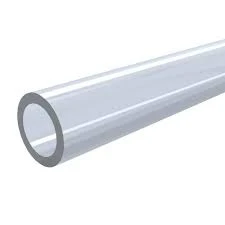നവം . 05, 2024 04:18 Back to list
pvc pipes and fittings
The Versatility and Benefits of PVC Pipes and Fittings
Polyvinyl chloride (PVC) has become an essential material used in a variety of plumbing, construction, and industrial applications. Known for its durability, lightweight nature, and resistance to corrosion, PVC pipes and fittings have established themselves as a go-to choice for contractors, builders, and DIY enthusiasts alike.
One of the most significant advantages of PVC pipes is their durability. Unlike metal pipes that can corrode over time, PVC pipes are immune to rust, rotting, and chemical damage. This makes them ideal for a wide range of environments, including both residential and commercial settings. In addition, PVC is resistant to UV radiation, which means it can withstand harsh outdoor conditions without degrading.
The Versatility and Benefits of PVC Pipes and Fittings
PVC pipes also offer a high degree of versatility. They are available in various sizes and pressure ratings, making them suitable for a multitude of applications—from drainage systems and irrigation to potable water supply and drainage pipes. Moreover, PVC fittings, such as elbows, tees, and adapters, complement the pipes by providing the necessary connections and angles for a range of piping configurations. This adaptability makes PVC a preferred choice in both residential and commercial plumbing systems.
pvc pipes and fittings

Another critical factor contributing to the widespread use of PVC pipes and fittings is their cost-effectiveness. When compared to other piping materials, PVC is relatively inexpensive to manufacture and purchase. This affordability extends beyond the initial investment; PVC pipes also require less maintenance over their lifespan, further reducing costs. They do not require protective coatings or treatments, and their longevity means fewer replacements over time.
Safety is another important aspect of PVC pipes. They do not leach harmful chemicals into water supplies, making them a safe option for drinking water and other applications. Many PVC products meet or exceed health standards set by organizations such as the Environmental Protection Agency (EPA) and the American National Standards Institute (ANSI).
However, while PVC pipes have numerous advantages, it is essential to consider certain limitations. For example, they can be susceptible to damage from heavy impacts or extreme temperature fluctuations. In addition, PVC is not the best choice for hot water applications, as prolonged exposure to high temperatures may lead to warping or failure of the material. Understanding these limitations can help in making informed decisions when selecting the appropriate piping material for specific applications.
In terms of installation, the process is straightforward thanks to the availability of solvent cement, which allows for easy and secure connections between PVC pipes and fittings. This simplicity makes it accessible for DIY projects, further increasing the popularity of PVC in home improvement endeavors.
In conclusion, PVC pipes and fittings represent a blend of durability, versatility, cost-effectiveness, and safety. Their unique properties make them suitable for a wide array of applications, from simple residential plumbing to complex industrial systems. As construction and plumbing industries continue to evolve, the demand for reliable and efficient materials will only grow, affirming PVC's place as a vital component in modern infrastructure. Whether you're a contractor, a business, or a homeowner, considering PVC for your next project could be a smart choice that offers long-lasting benefits.
-
Durable PP Rigid Sheet: Lightweight, Chemical Resistant Solutions
NewsAug.21,2025
-
PVC Grey Sheet for Extraction: Chemical Resistant & Durable
NewsAug.19,2025
-
Durable PVC Pipe Fittings for Plumbing & Irrigation Needs
NewsAug.18,2025
-
HDPE Steel Belt Reinforced Spiral Corrugated Pipe | High Strength
NewsAug.17,2025
-
HDPE Pipe Fittings: Durable, Leak-Proof Solutions
NewsAug.16,2025
-
Premium CPVC Sheet: High-Temp & Chemical Resistant Solutions
NewsAug.15,2025

